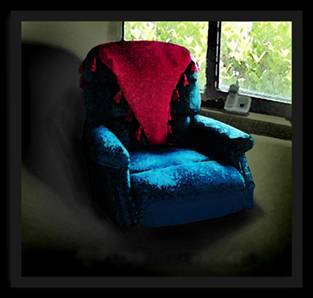

|
|
Empty Nest Magazine
|
STYLE
Mothers and Daughters: Who Really Cares How My Hair Looks? by Patricia McLaughlin
Mothers Can Be So Annoying 
Photo by Patricia McLaughlin. As Mother’s Day approaches, people tend to get all sweet and gooey like a chocolate cream in the sun on the subject of mothers and motherhood. So I have to hand it to the Wall Street Journal’s fluff section for tackling the overbearing mother problem just a couple of weeks ago. (Bet you anything at least one editor wanted to hold the Elizabeth Bernstein column—“‘I’m Not Your Little Baby!’ Calling a Truce in Mother-Daughter Conflict”—for Mother’s Day weekend, given the weird fetish for timeliness so many dead-tree journalists retain from the olden days, when you had to plan Christmas coverage months or weeks ahead, instead of just rolling out of bed on Christmas morning and posting some cell-phone photos of the tree and the presents on your blog. But cooler heads, understanding that a newspaper that said mean things about mothers on Mother’s Day risked being struck by lightning or an epidemic of boils, prevailed.) The piece was full of stories any daughter could identify with: mothers who re-load the dishwasher because you’ve done it all wrong, phone you every day for three weeks to see if you’ve scheduled your mammogram, criticize your table settings, think your skirts are too short, complain you don’t call enough, worry about the way you spend your money, wish you’d wear your hair a different way—and can’t resist telling you so. (One daughter in the story felt obliged to phone ahead in self defense before a visit to ask her mom to stay mum on daughter’s new haircut if she couldn’t say something nice about it.) Would your mother walk into anybody else’s house and scrub the bathroom floor because it wasn’t up to her standards? Would she tell a friend or neighbor she should lose weight or get a decent haircut?
But it’s no wonder mothers and daughters have a hard time setting boundaries, or respecting them. For years and years, it’s your mother’s job to worry about you: Are you doing your homework, eating your vegetables (and chewing with your mouth closed), brushing your teeth, hanging up your clothes, hanging out with the wrong crowd, etc., etc., etc. How can she stop just because you’ve grown up? She’s no longer in a position to protect you from unflattering colors, bad haircuts, empty calories, mean boys, dangerous strangers, poor choices—but how can she stop wanting to? She still worries, but she has no control—so she offers “helpful suggestions,” often perceived as criticism/disapproval/nagging. Meanwhile, you’re officially a grown-up, and you want to make your own decisions and do things your own way. But how can you not still crave the approval of the person whose admiration—of your first step, your first dance recital, the art you brought home from kindergarten—once was everything to you? A relationship that’s fraught to begin with is further complicated by chronology. Mothers have time on their hands and want to see more of you; daughters are juggling a million responsibilities and have no time. Mothers of middle-aged women remember a time when a woman whose house was a mess had failed as a person; daughters who work full-time let housekeeping slide. Mothers who started wearing makeup in the 1940s or ’50s think lipstick should be bright; daughters formed by the ’60s or ’70s may equate bright with garish.
“Why aren’t you wearing any lipstick?” my mother would ask.
“You aren’t going to wear that?” she’d say, frowning at a baggy T-shirt. “How can you live like this?” she’d ask, pointing to a tumbleweed-sized dust bunny.
Every time I called her, at some point in the conversation she’d ask, “When are you coming to visit me?”
The weird thing is: After she died, those were the things I missed most. “I worry about you because I love you,” she’d say, when I’d complain that she didn’t need to worry so much. I never noticed how much I’d come to depend on it. Now I miss being worried about.
 Patricia McLaughlin is a Philadelphia-based Universal Press Syndicate columnist writing on fashion and style trends. Her “RealStyle” column appears each Sunday in 100 newspapers across the United States and Canada. Patricia last contributed to Empty Nest in fall 2010. Patricia McLaughlin is a Philadelphia-based Universal Press Syndicate columnist writing on fashion and style trends. Her “RealStyle” column appears each Sunday in 100 newspapers across the United States and Canada. Patricia last contributed to Empty Nest in fall 2010. |
Empty Nest: A Magazine for Mature Families
© 2011 Spring Mount Communications